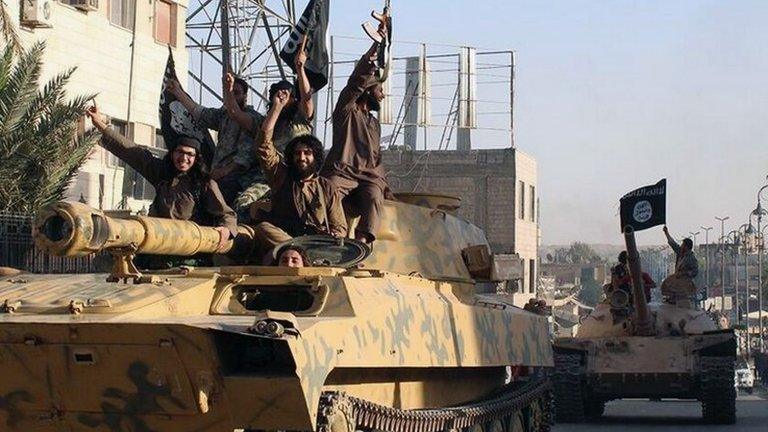Photos show 'weaponised commercial drones' in Iraq
- Published
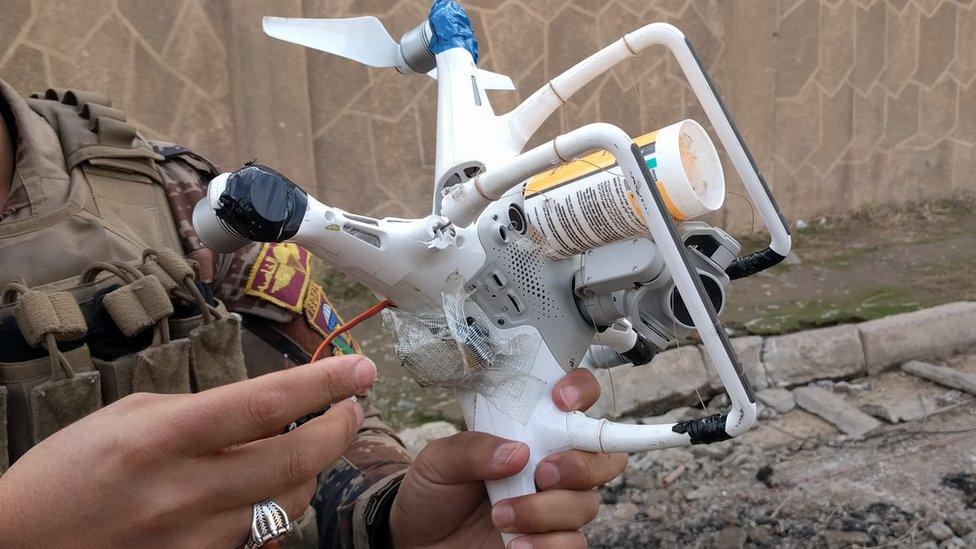
The consumer drones have been modified to carry explosives
Photos taken in Mosul, Iraq, appear to show grenade-dropping drones used against the Iraqi security forces.
The improvised weapons consist of a plastic tube attached to a consumer camera drone to carry explosives.
The images were taken by former US Army special forces officer Mitch Utterback, who was in the country as a journalist.
Last week a US Army commander said so-called Islamic State fighters were using such weapons as they tried to avoid losing control of the city.
"It's not as if it is a large, armed UAV [unmanned aerial vehicle] that is dropping munitions from the wings - but literally, a very small quadcopter that drops a small munition in a somewhat imprecise manner," said Col Brett Sylvia, external.
Islamic State has previously used drones to record footage for propaganda videos and for aerial surveillance, as well as creating improvised weapons.
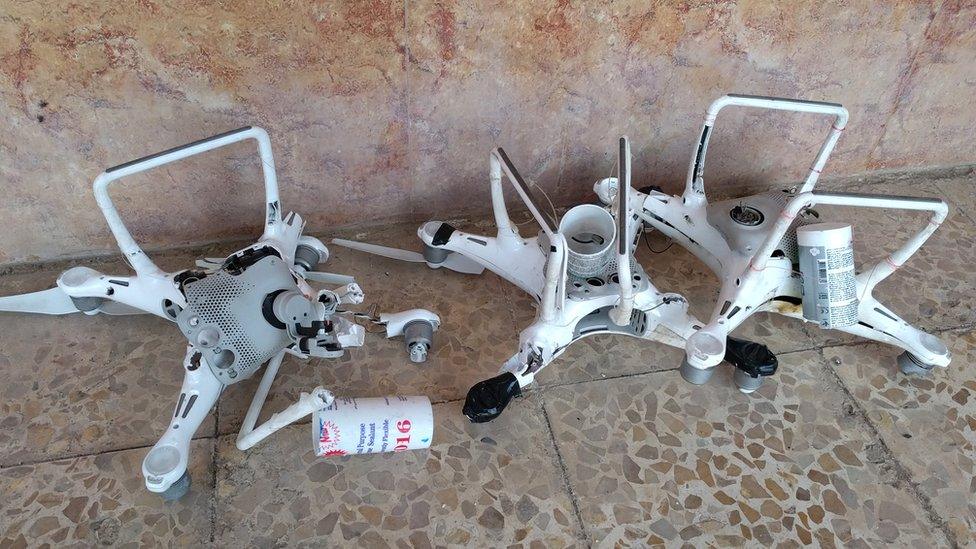
Mr Utterback shared photographs of the modified drones with the BBC
In October, two Kurdish Peshmerga fighters were killed in northern Iraq when a modified drone exploded.
Many off-the-shelf drones can fly for up to half an hour, have a range of several miles and retail for less than £1,000. making them affordable for militant groups.
"The group is known for turning things they can get hold of into weapons," said Justin Bronk, a research fellow at the UK military think tank Rusi.
"While it shows innovation, the main threat from drones is far and away the ability to hover a camera drone and adjust aim of more direct weapons."
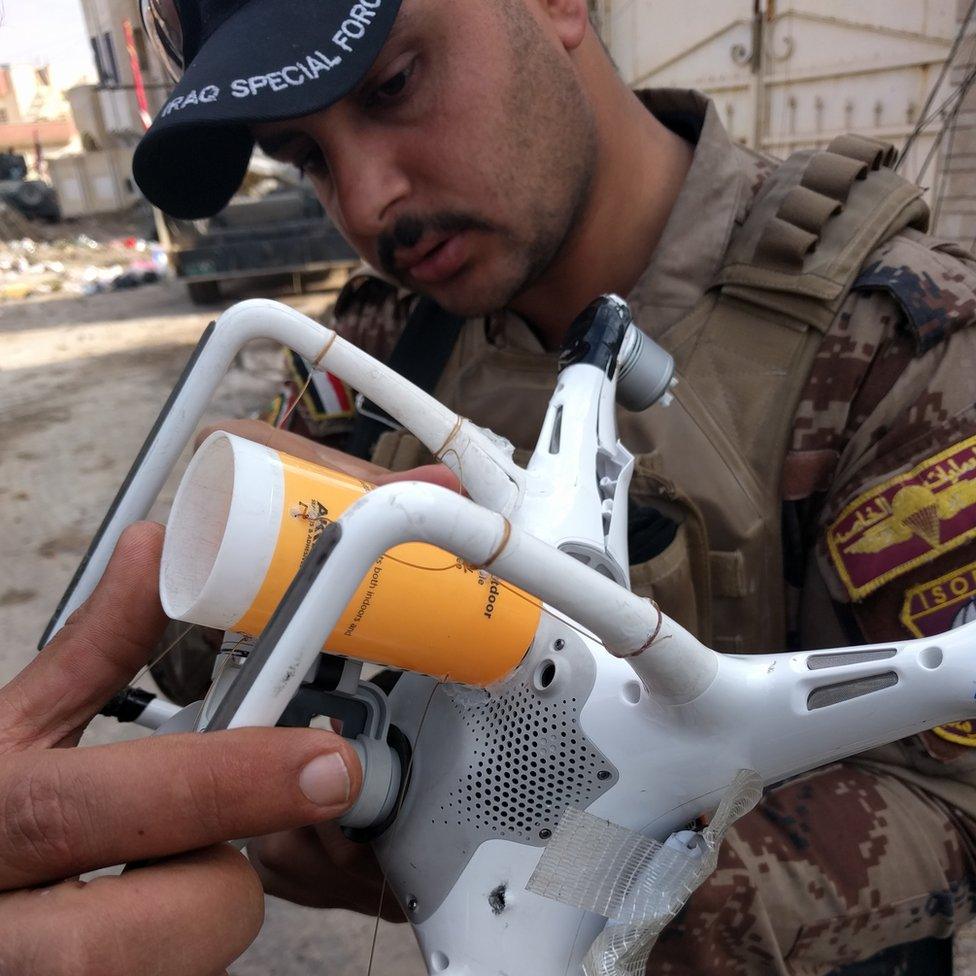
Mr Utterback said the drones were designed to drop 40mm grenade rounds
Mr Utterback told the BBC the devices' electronics had been modified to release grenades.
"We saw these every day. The Iraqi forces are very concerned with them," he said.
Drones can be difficult to shoot down, but new weapons are being developed to tackle them.
Some aim to disable to devices by blocking the radio signals they require to be controlled.
"Commercial drones tend to operate in the 2.4 gigahertz range, they are relatively easy to jam," said Mr Bronk.
"They are difficult to spot and shoot down, but if you have jamming capabilities you can deny them airspace."
Mr Utterback said the Iraqi forces he had been visiting had had some success shooting down the drones.
"When spotted, every rifle and man-carried machine gun opens up to try and shoot them down," he told the BBC.
"Almost half the time, they are successful."
- Published13 October 2016
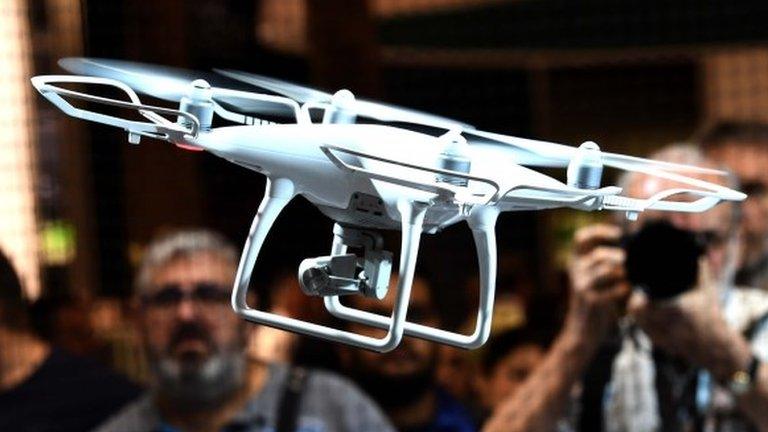
- Published12 October 2016
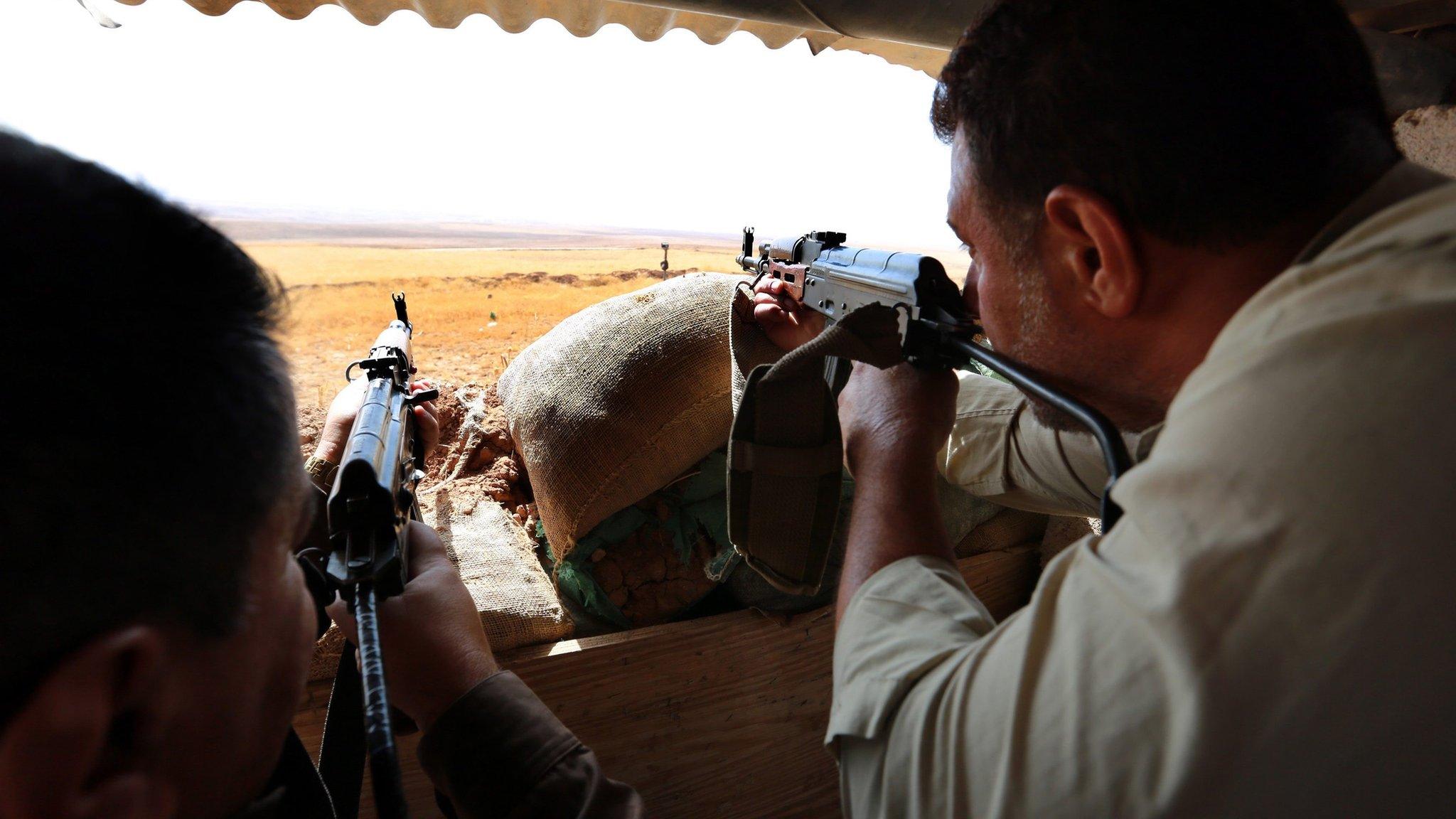
- Published2 December 2015
